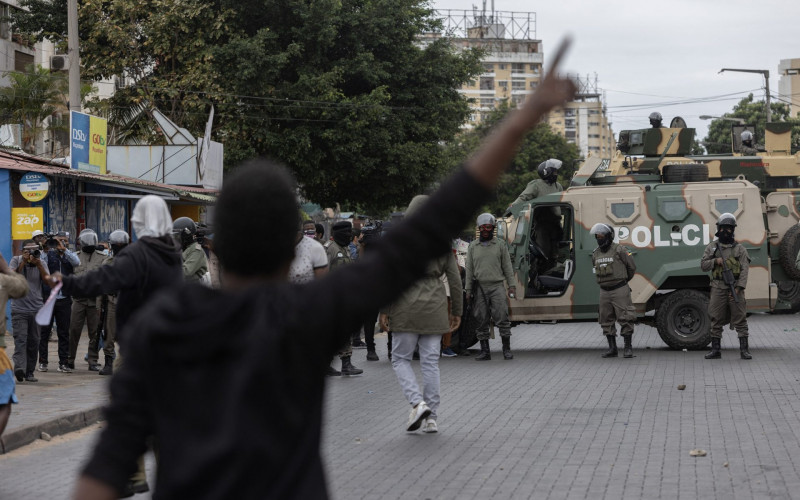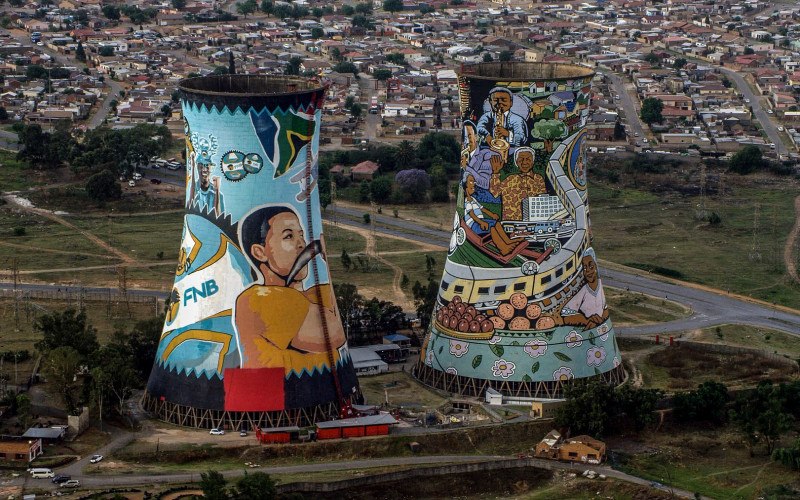They are, of course, those most troublesome of all entities, the non-governmental organisation (NGO). NGOs variously educate, research, publish, manufacture, lobby, mobilise, protest and agitate on as broad a range of issues as there are in society. They are the backbone of civil society and an essential pillar of plural democracy. Moreover, NGOs can and do play a unique role in public policy conceptualisation, formulation and implementation. South African NGOs range in size from single person outfits to those supported by tens of thousands of members and in longevity from centurions to new age travellers. Some are financially sound, but most operate in a precarious state of scarce funding, job insecurity and threadbare facilities.
Of the myriad attacks on NGOs in our history, it is perhaps Mbeki’s at the recent African Peer Review Mechanism (APRM) consultative conference in Johannesburg that is most troubling. We came to expect nothing more from PW Botha and Robert Mugabe than to marginalize, demonise or destroy any NGO perceived as a threat. From Mbeki we expected so much more. This expectation was stoked by the memory of international donor support for the liberation movements, the lifelines extended to anti-apartheid NGOs and newspapers as well as to today’s democratic South African parliament. Perhaps it was the Mbeki-conceived and driven partnership with international donor countries enshrined in NEPAD that further reinforced this (mis)perception or the Herculean efforts of Mbeki in ensuring the G8 and international donors agree to double aid to Africa? So why the veiled attack on international donor-funded NGOs?
Typically, we are left to de-code the President’s message and await government spokespeople correcting the misinterpretations some amongst us make, but reportedly Mbeki raised questions about the representivity, Africanness and integrity of NGOs in South Africa. These concerns need to be taken seriously, every bit as seriously as the question of petrodollars crudely oiling the wheels of South African political parties and government foreign policy.
Clearly, the president was not questioning whether animal rights groups are barking mad and doing little to improve the lives of the bitingly challenged. Rather the subtext was aimed at ‘political’ NGOs, those whose activities seek to impact on public policy.
On the first concern, that of representivity, he has a point. It behoves NGOs to regularly seek and renew the mandate of those they purport to represent. It is far too easy for an educated petit bourgeois elite within an NGO with very little accountability, to drive agendas far removed from the original raison d’etre. Thus NGOs ought to operate under strong constitutions, within principles of internal democracy and maintain robust channels of communication between constituencies and office bearers. The funding and expenditure of NGOs must be scrupulously transparent. Ultimately, however, if an NGO fails to carry out the mandate of its constituency or is ineffective in doing so, it will fold. Furthermore, in the highly competitive environment of donor funding in South Africa, should an NGO fail to demonstrate issue relevance, or support from a legitimate constituency and a history of good corporate governance, its funding proposals will be met with a polite ‘no’. Ultimately donors are accountable to their own domestic taxpayers. More crudely, Ambassadors and aid agency directors are not promoted by funding marginal, unrepresentative, non-performing or corrupt NGOs in South Africa. Donors seek to identify and fund projects and NGOs whose activities match their own international development priorities with those of the host nation. Even where a donor country may disagree with an aspect of South African public policy, embassies tend to fund NGOs and projects that dialogue with and meliorate government policy rather than undermine it.
Mbeki’s second question was whether there were truly African NGOs in South Africa. If this was asked by the “I am an African” Mbeki, then we can confidently answer yes, we enjoy an abundance of NGOs representing every aspect of South African life. If Mbeki was asking whether we have NGOs committed to improving the lives of Africans in respect of health, education, security and employment, the response would again be a proudly South African yes. If Mbeki was asking whether we have NGOs that are funded by the international donor community and that strongly promote and implement the government’s public policies, then the answer would again be yes. If, however, Mbeki was asking whether there are NGOs that have been in existence for decades and are yet to fully navigate their way through the challenges and opportunities of racial transformation, then a number of us would have to put up our hands and be marked ‘try harder’.
The final question as to whether NGOs front the interests of international donors goes to integrity. Conceptually, politically and programmatically it is difficult to discern profound differences between the international development policies and agencies of those named by Mbeki (Sweden, Denmark, the United States and Japan) and those prioritised by the South African government. Even on the most vexed question of the treatment of HIV/Aids, all of the above donors have worked constructively with both the government and NGOs to tackle this tragedy, despite differences of interpretation and approach. But the implied question posed by Mbeki was whether or not South African NGOs are prepared to pursue agendas funded by the international donor community regardless of whether they are in the interests of South Africa and Africa. Without throwing the question back at the government and its own acceptance of donor support, the answer to Mbeki’s question is overwhelmingly no. By and large, NGOs define their own agendas and programmes, not the donor community. When not pre-occupied with trying to secure funding for projects, a day in the life and the average NGO in South Africa would show a group of motivated and committed South Africans, Africans and internationals working in less than optimal conditions to make a better life for all.







